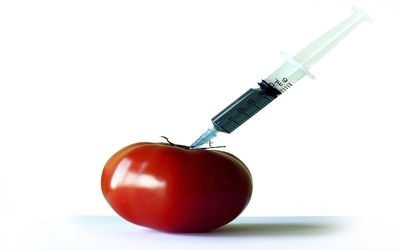Is Modified Food Modifying Us As Well?
How much do you really know about genetically modified (GM) food? If you’re like most people, your answer to that question is probably “not very much”, yet it seems that many people have strong opinion about the gene modification of the food that they eat, even if they don’t really know much about why they don’t like it or why whether it is safe and healthy or otherwise. In fact, in a recent study it was revealed that more than half of people in the US do not want to eat GM foods despite their lack of knowledge as to what it is and the benefits of it.
Nevertheless, people still appear to eat GM foods in large numbers and this apparent distrust of GM foods has not led to a significant rejection of them at store level. Still, there is a big push going on, organised by those people who disapprove of genetically modified organisms, to get them to be removed from foods and food production in the US.
But what do we mean when we talk about GM foods? Well, here is a breakdown of what typically is going on within the production of GM food. In the traditional cross-breeding process, you take two varieties of, for example, tomatoes and then cross them together to create a more robust fruit. However, there has been a recent trend using the modern technology to insert out-of-species genes, that are often from bacteria and viruses, into the gene structure of plants like corn, soybean and cotton, introducing genetic matter into the food that we eat that has never been there before. In effect, then, we are eating things that are bodies have never ingested before.
This process is quite controversial as it can even allow conventional growers to do use even larger amounts of poisonous herbicides onto the modified plants without killing the crop – the plants have been created to be more able to stand up to strong chemicals so they doused in pesticides to help stop them be eaten. Unfortunately this has a number of problems in the fact that it introduces more chemicals into the groundwater and waterways near the farms that grow these crops and, perhaps worse, it also increases the amount of chemical residue on the foods – those same foods that you eat every day. It is even true that some crops have been specifically modified so the plant produces its own pesticide.
In another twist it seems that GM foods are being blamed for an increased level of allergies, new toxins and other immune problems. For instance, it has been noted that soy allergies increased by 50 per cent in the United Kingdom after GM soy was introduced here. And in studies on animal, feeding mice GM foods has been shown to cause issues with digestion, smaller livers, reproductive problems and even an increased rate of infant mortality. We also know that livestock that have grazed on GM cotton fields have died abruptly, too. If pesticide genes are able to transfer into the bacteria in our gut—as the only human study on the subject suggests they can—we’re in for some serious changes in our stomachs.
All in all, its clear that far more research needs to be done into the effects of GM foods and whether it is only certain types of gene modification that causes problems or if it is a concept that needs to be abandoned altogether. After all there are so many potential benefits of gene modification, it seems a shame to throw it away on flimsy evidence that might prove to be irrelevant in the long term.


Comments are closed.